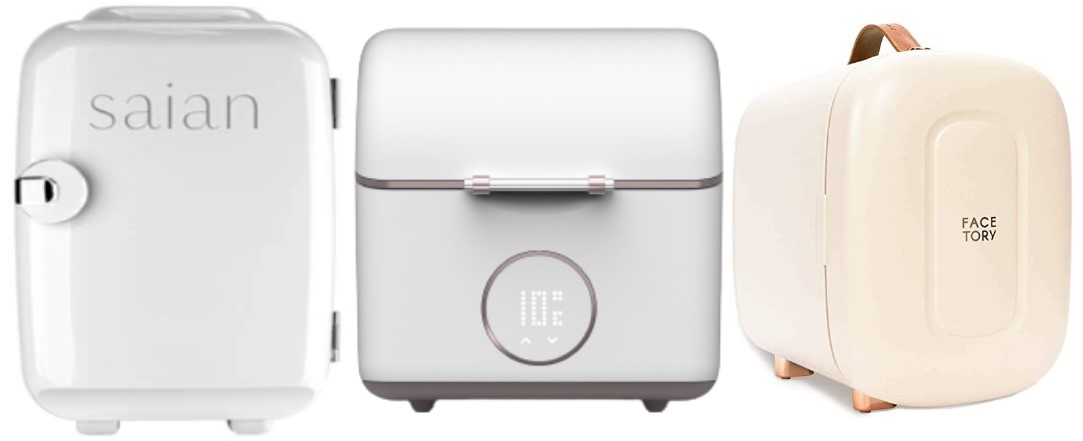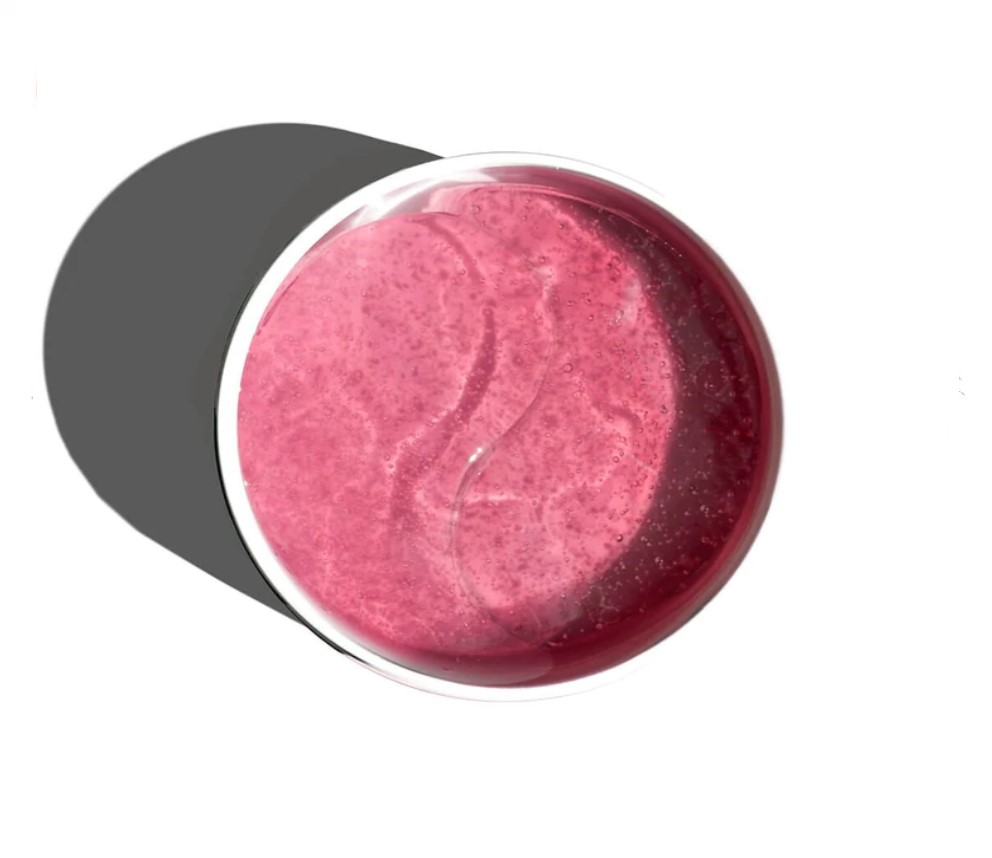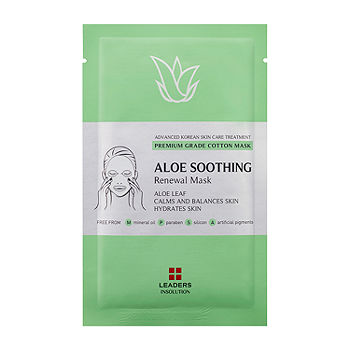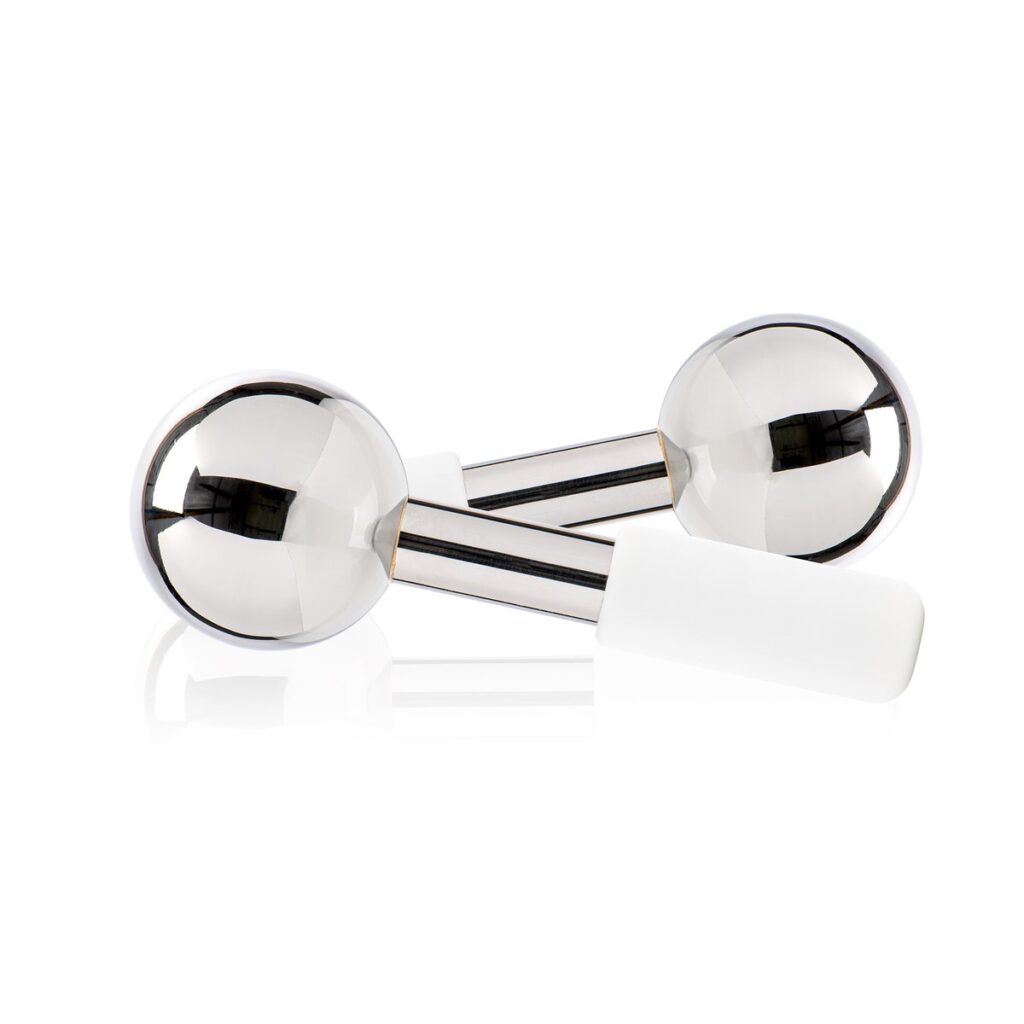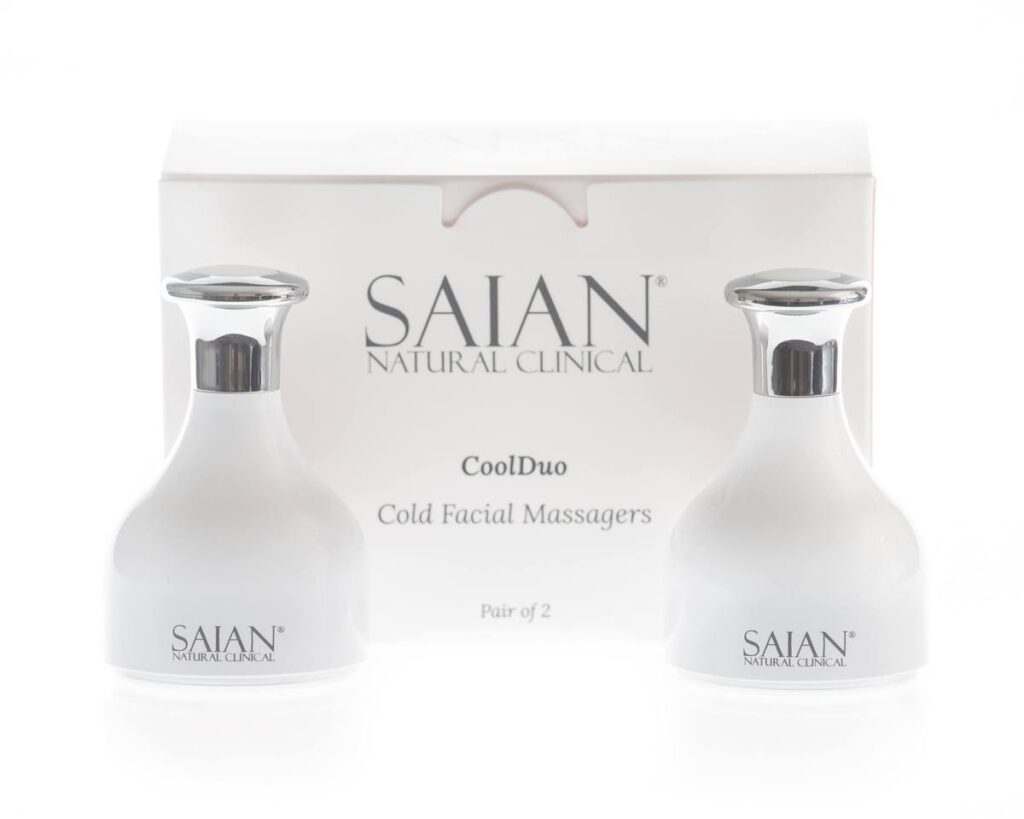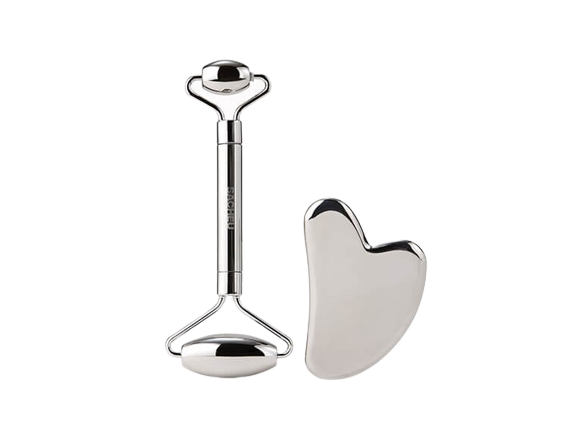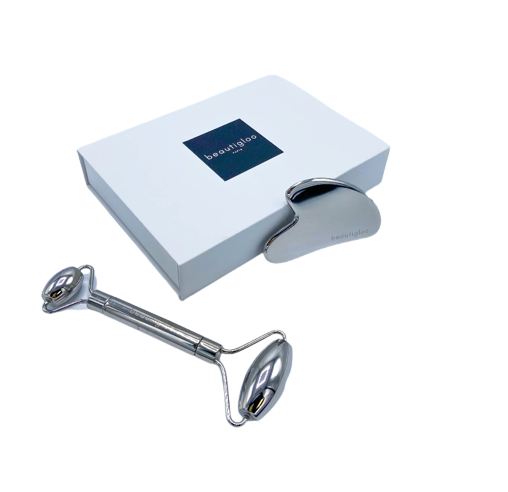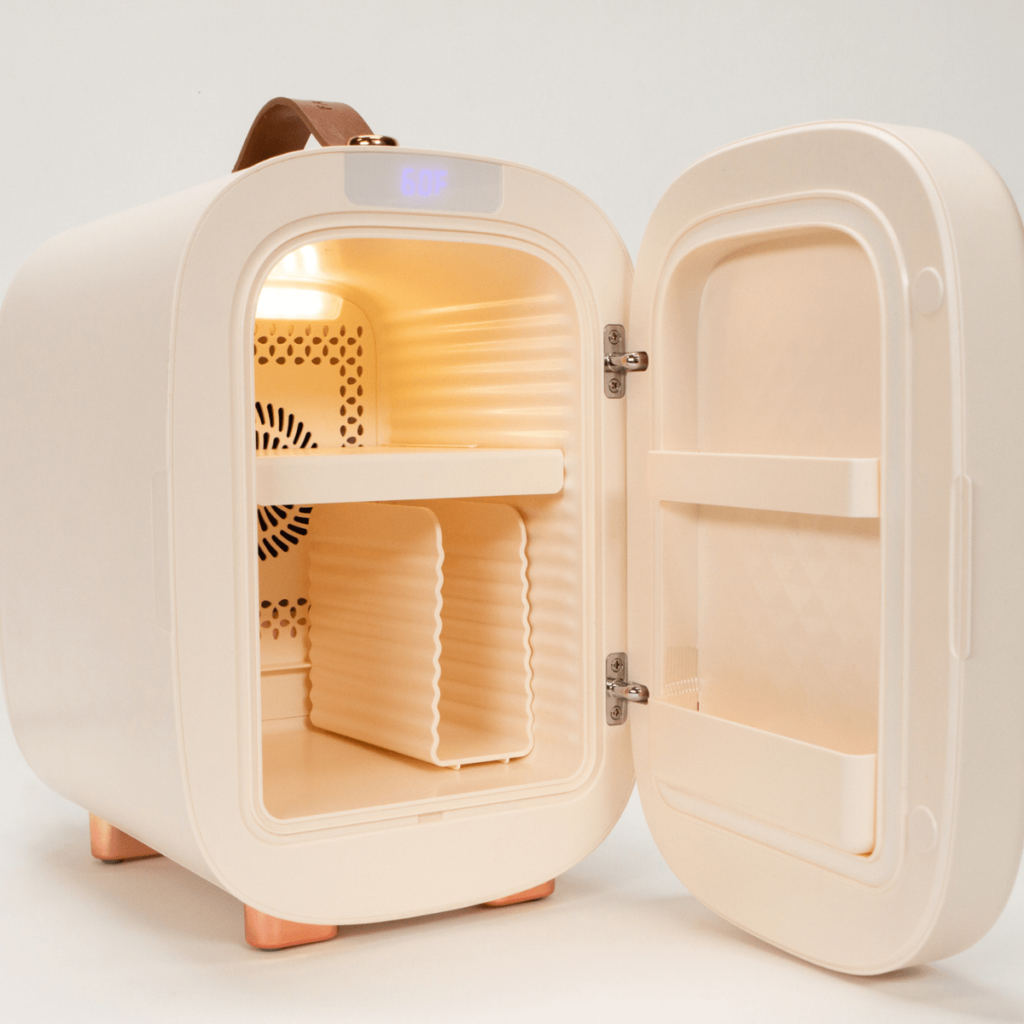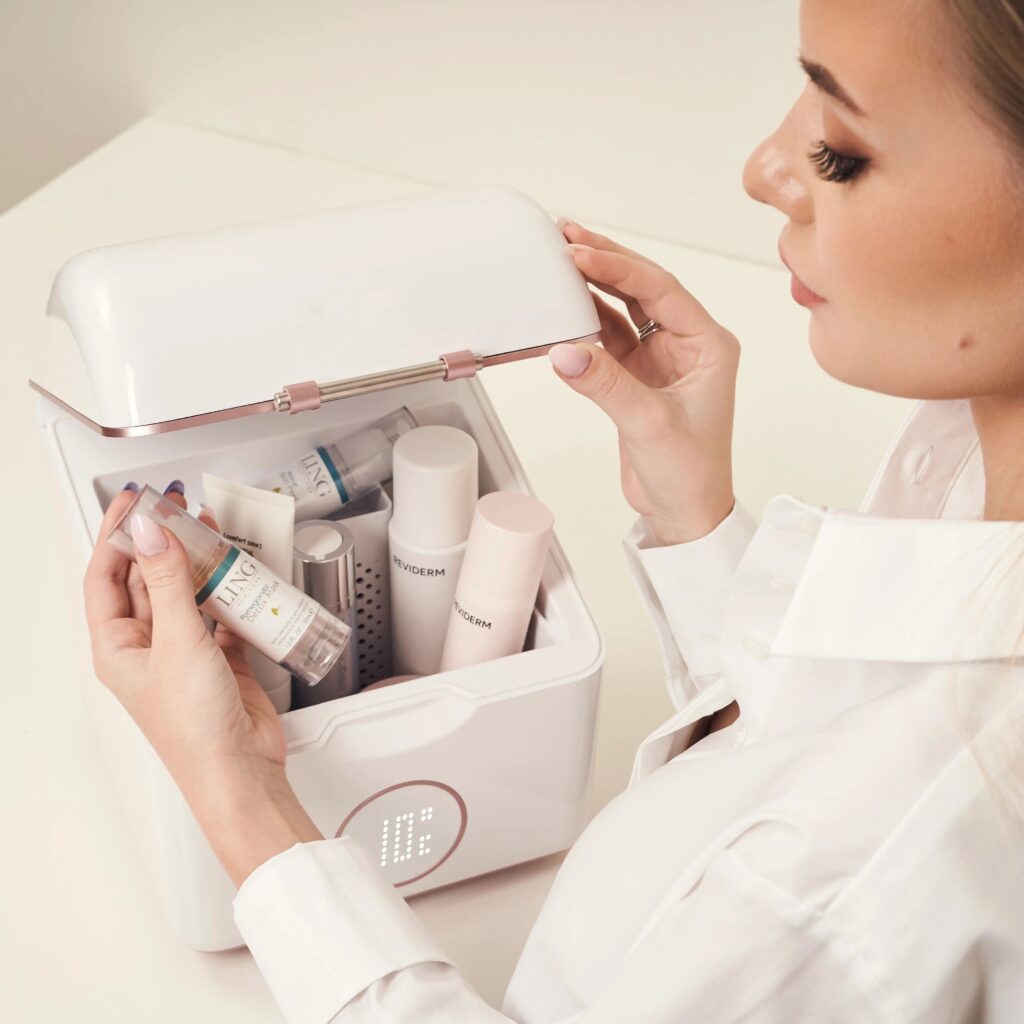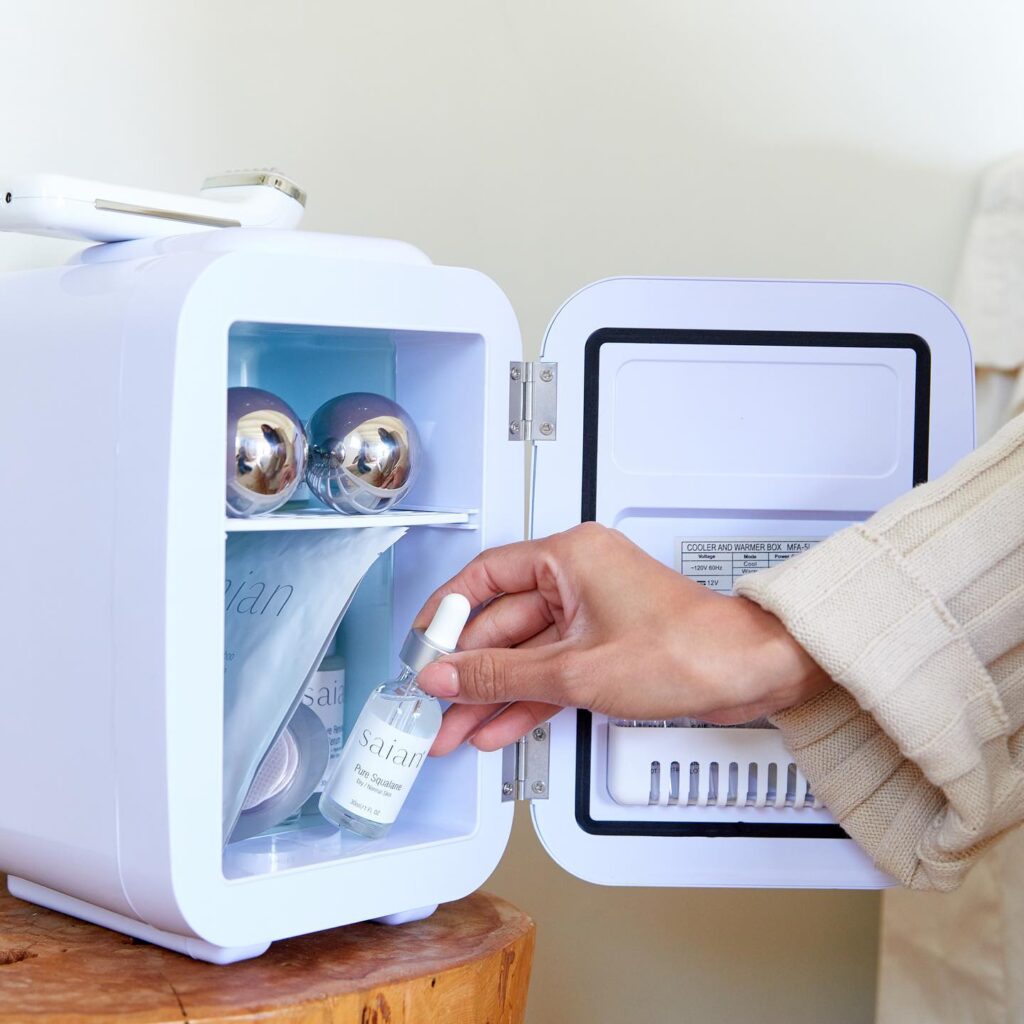August 25th 2021 updated May 31st 2022
Is A Skincare Fridge Worth It?
Skincare Fridge “Shelfie” images….. Have you seen them? I have. I am always interested as an aesthetician to see what people are using for skincare and how they organize them. I really like the idea that people are having fun with it, and if it helps people into a more enthusiastic mindset about skincare routines, why not? But…. are they worth it?
A skincare fridge is not the same thing as a mini fridge or a kitchen fridge
The U.S. Food and Drug Administration (FDA) recommends that foods be stored at 40ºF or below. (1) Most household fridges on average, keep temperatures between 32ºF and 40ºF . (2) And most skincare products are fine with this, however when a kitchen fridge has ice build up or frosting, this will bring the fridge temperature below what skincare products should be stored at. When skincare products freeze, this can possibly compromise the ingredients or cause the emulsion to break, depending on the product.
Can it help with certain skin conditions?
Absolutely. Applying a cold moisturizer or crème can help calm an inflamed skin barrier and provide relief.
Itchy skin can be from a variety of reasons including eczema/dermatitis, rosacea, dry skin or xerosis, psoriasis, insect bites or hives. For this reason alone, it’s beneficial for certain moisturizers and creams to be chilled in a skincare fridge to help soothe skin suffering from such conditions. K-Beauty brand Leaders Cosmetics makes a aloe mask that chills wonderfully.
Chilled hydrogel eye patches will also assist with dark circles and puffy eyes because it will assist in constricting blood vessels. My favorite is Patchology Served Chilled Rose Eye Gels.
Can it prolong the shelf life of products?
Honestly, this is reaching. Most products in today’s modern market do not need to be refrigerated. They are formulated for an average of 12 months, which is plenty of time to use a product.
There are however, some products that have a much less shelf like and rosewater is one of them. Natural rosewater has a shelf life of 7 to 14 days. Distilled rosewater has a shelf life of 6 months. Rosewater benefits from being stored in cool, dry places out of direct sunlight but this will not prolong the shelf life.
There are also topical skincare medications that should be refrigerated such as Tri-Luma that works well for a treatment of melasma conditions. Tri-Luma is a prescription cosmetic product or a topical steroid containing 0.01% Fluocinolone Acetonide, 4% Hydroquinone and 0.05% Tretinoin (Retina-A). This product must be stored at 2º – 8ºC (36ºF – 46ºF). Another topical prescription medication that should be refrigerated is Hydroquinone (Dihydroxybenzone) which is a hydroxphenolic compound used to prevent formulation of melanosomes and helpful in treatment of skin hyperpigmentation disorders.
Again, refrigerating these products will not prolong shelf life, but you always want to follow manufacturer directions on how to properly store your products.
There are also products you SHOULD NOT keep in a skincare fridge. Products with clay as a base ingredient are common in face masks and exfoliators, but clay rarely stores well in cold environments. Another example of this is products with certain oils such as coconut oil or grapeseed oil. Even at room temperature these oils will solidify and make it difficult to apply. Putting facial oils in a beauty fridge is not recommended, as they do not store well in cold environments.

The Period-After-Opening symbol or PAO Symbol is a graphic symbol that identifies the useful lifetime of a cosmetic product after its package has been opened for the first time. It depicts an open cosmetic pot and is used together with a written number of months or years.
Unless Directed, Your Vitamin C Products Do Not Go In Fridge
I have heard many times from many different sources that you can prolong the shelf like of your expensive vitamin C serums if you keep them in a skincare fridge. I can only assume people say this because some forms of vitamin C are unstable. Before products can even be released into the market, they must go through stability testing, to show tht the product is stable and will not lose it’s efficacy after being opened or decompose at room temperature. Without looking at each individual product, I’m still going to state that most products on the modern market are using shelf stable forms of vitamin C. I use Lira Clinical and Hale & Hush in my practice, and never worry about refrigerating any of their products that have vitamin C. These are professional lines with highly concentrated active ingredients.
If the product does not require refrigeration, then placing it in the fridge is unnecessary (unless your goal is chilled, cooling effect) and does not make the product more effective or prolong shelf life.
Vitamin c is water-soluble and breaks down when exposed to oxygen and sunlight. Most products with vitamin c are formulated in an amber colored or opaque packaging and this is to protect it from breaking down with sunlight. Generally, the best way to store vitamin c is at room temperature and out of the sunlight.
Skincare Tools To Store In Fridge
I wont recommend skincare tools like jade rollers because of the porous material that will hide bacteria. However, I will recommend stainless steel tools which are non-porous and easy to sanitize. These stainless steel tools chill well in skincare fridges. I sell both Sacheau Beauty and Beautygloo Paris stainless steel tools in my spa.
Saian globes and cool massagers are a good option. The cool massagers, in my opinion, also work really well on sore muscles like the neck and shoulder blades. Sacheu’s stainless steel facial roller or gua sha chill well too. The chilled sensation constricts blood vessels and assist in providing relief. The globes and rollers will also prolong the chilled sensations of sheet masks.
Understanding Additional Expenses & Actual Fridge Life
If your expecting your beauty fridge to last as long as a kitchen fridge, then you will be disappointed. The life of a kitchen fridge on average is typically 13 years, with a mini fridge being around 9 years. But a skincare fridge is not the same. One of the biggest complaints consumers have with skincare fridges is the life expectancy of the appliance. I would say normal life expectancy of a skincare fridge is 1-2 years. Anything beyond that is a blessing.
I sell Facetory, Beautygloo Paris and Saian skincare fridges, both Facetory and Saian manufacturers give a 1 year warranty on their products. Beautygloo Paris offers a 2 year warranty, however it comes with a much higher price tag as it is a luxury skincare fridge with advanced technology. How long your skincare fridge lasts will be up to the quality of your fridge and proper care. I do not recommend keeping your fridge in areas like the bathroom where there is high humidity and heat. Keeping your skincare fridge in rooms with high heat is also not advisable.
Additionally, you should take into account that while small, a skincare fridge uses electricity and it will add to your bill. Most beauty fridges use only 0.5/kWh of power per day or 182.5/kWh per year. To get the annual energy cost, we use the average electricity consumption price of 12 cents per kWh, which will equal out to $21.90 for a skincare fridge to operate for a year (estimated).
Proper Care For Your Skincare Fridge
Skincare fridges must have maintenance care. This includes cleaning and taking care of any condensation that builds up in the fridge. Do not use harsh or abrasive cleaners for the inside of your fridge, opt instead by using warm soapy water and a clean sponge or non-abrasive cloth. Make sure your fridge is dry before closing the door to avoid any growth of mold or bacteria.
The fan in the back must be dusted out as well. Build up of dust and debris will shorten the life of your skincare fridge.
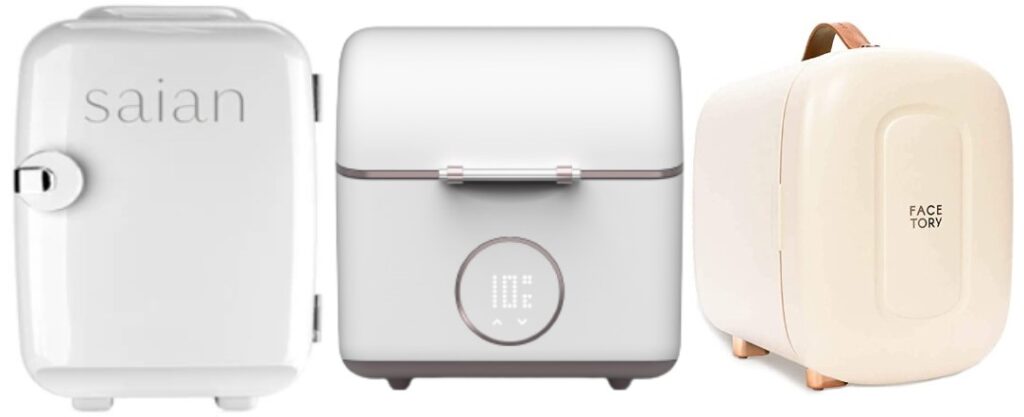
Make sure you give your skincare fridge space so it can ventilate. Without proper ventilation you can damage the fridge and cause it to consume more energy.
Skincare Fridge Opinions
After taking all of this into consideration, I would still recommend having a skincare fridge for certain conditions while understanding that generally, this is a luxury item. Ultimately, it’s up to you and your skincare needs on if you should invest in a skincare fridge.

